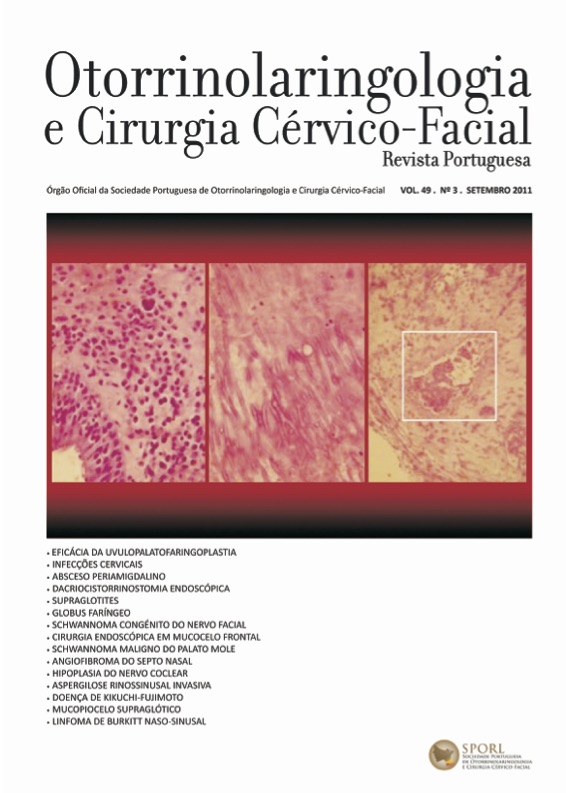Cochlear nerve hypoplasia: A rare etiology of adult deafness diagnosis
DOI:
https://doi.org/10.34631/sporl.182Keywords:
deafness, sensorineural, vestibulocochlear nerveAbstract
Unilateral sensorineural deafness may be caused by different lesions in the inner ear or in the central nervous system, including congenital malformations.
We describe a 45 years-old woman with unilateral deafness and occasional tinnitus, noted since childhood. The otoscopy was normal. The tonal audiograms showed moderated sensorineural deafness and the magnetic resonance (MRI) revealed cochlear nerve aplasia.
The diagnosis of cochlear nerve aplasia in adulthood is extremely rare and the MRI is the only valuable method to evaluate the course of the vestibulocochlear (including the three branches) and facial nerves.
Downloads
References
- Laury A, Casey S, McKay S, Germiller J. Etiology of unilateral neural hearing loss in children. Int J Ped Otorhinolaryngol. 2009; 73: 417-427.
- Foer B, Kenis C, Van Melkebeke D, Vercruysse JF, et al.. Pathology of the vestibulocochlear nerve. Eur J Radiol. 2009; doi:10.1016/j.ejrad.2009.06.033.
- Casselman J, Offeciers E, Foer B, Govaerts P, et al.. CT and MR Imaging of Congenital abnormalities of the inner ear and internal auditory canal. Eur J Radiol. 2001; 40: 94-104.
- Acker T, Mathur N, Savy L, Graham J. Is there a functioning vestibulocochlear nerve? Cochlear implantation in a child with symmetrical auditory findings but assymetric imaging. Int J Ped Otorhinolaryngol, 2001; 57: 171-176.






